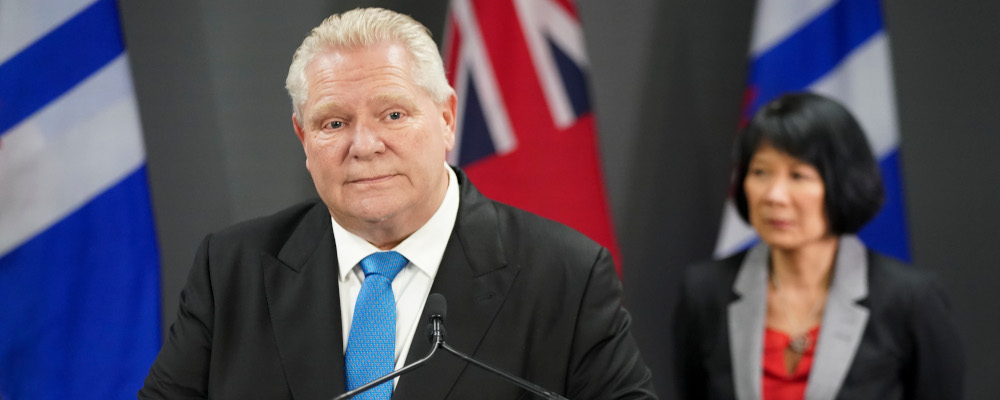Canada’s cities hold the key to Canada’s future, but first they must be freed from the chains of Canada’s past. Trapped in a badly outdated and hopelessly paternalistic governance structure, municipal governments, regardless of their size, are mere “creatures of the provinces.”
Little wonder they can never rise above the level of their political masters who, all too often, are provincial in both senses of the word.
Not only does this make civic democracy a desperate illusion, but it also means that the 80 percent of Canadians who live in towns and cities and the suburbs in between have little control of their political destiny. This does not bode well for the state of the nation, especially at a time when our well-being relies more than ever on the sort of entrepreneurial creativity nurtured in communities that are dense, diverse, and dynamic. These are where the critical mass of goods and services, education, culture, and cash that underpin economic success are found.
Cities are also where many of the most troubling issues of the 21st century are playing out. This includes everything from homelessness and housing to public health, refugee resettlement, and climate change. Without the means to deal with these burgeoning crises, Canadians face increased social division, economic decline, and growing inequality.

Even in the best-case scenario, civic impotence abandons cities to the mercy of provincial governments, who are more often the cause of municipal troubles than the solution. Take former Ontario Premier Mike Harris’s decision to dump $3 billion worth of programs onto that province’s towns and cities. It was called “downloading,” and as David Crombie, the former mayor of Toronto and federal Conservative cabinet minister, said at the time, “It is wrong in principle, devastating in practice.”
Even in Alberta, Premier Danielle Smith has had to take time out from waging war with the Trudeau Liberals to continue her province’s ongoing battle with Edmonton. Mayor Amarjeet Sohi referred to Alberta’s 2022 budget as “a slap in the face.” Calgary, he charged, home of the energy industry, gets more money. “Edmonton needs help,” Sohi insisted, to deal with homelessness, infrastructure, and business revitalization.
Let’s not forget the refugee crisis. Though immigration is a federal responsibility, it’s cities that must sort out the mess. Most asylum seekers in Canada end up in its two largest urban centres, Toronto and Montreal. Last summer, the situation in the former was so bad that many refugees ended up sleeping in the streets. After months of pressure, Ottawa finally coughed up $362 million to feed and house newly arrived refugees across the country. Montreal got $100 million, Toronto $143 million. Even with that, it is up to the cities to determine how to handle the growing influx of newcomers, most desperate, penniless, and ill-prepared for the harsh realities of life in Canada.
Similar examples of this expanding gap between civic governance and civic responsibilities abound. The migrant crisis was solved (sort of) by one-time federal grants. But what’s needed is systemic change and, more to the point, empowered civic decision-making and taxing authority. The legislation that created Canada, the British North America Act, was passed by the British Parliament in 1867. After many amendments, it finally achieved its current form in 1982. Cities went unmentioned except for one section that made it clear “provinces have exclusive jurisdiction over cities and other municipalities in the province….”
As a result, cities have few powers except those granted by the province. Of course, what the province gives, it can also take. Torontonians were reminded of this in 2018 when Premier Doug Ford abruptly chopped the city council from 47 to 25 seats. Adding insult to injury, he made the cut halfway through a civic election.
Even in those provinces that have so-called “Charter Cities”—Quebec, Nova Scotia, British Columbia, and Alberta—the extra powers, which typically include planning, transit, and governance, turn out to be largely meaningless in practice and can be overturned by a simple legislative majority.
Worse still, when the Supreme Court upheld Ford’s intervention with the Toronto City Council, (even though it broke provisions of the 2006 City of Toronto Act) it killed any hope that Canada’s cities were inching ever closer to becoming their own masters.
As often noted, the 157,000 inhabitants of Prince Edward Island have more control over their lives than do the three million inhabitants of Toronto, which, by the way, accounts for 20 percent of Canada’s GDP.
All this would matter less if property taxes and user fees on which cities rely were adequate to the demands they face. What municipalities need are sales and income taxes. Unlike property and sales taxes, both regressive, income taxes, which are progressive, increase with higher salaries.
And like good children who should be seen but not heard, Canadian cities are not allowed by law to run deficits. Imagine if so-called “senior” levels of government were bound by the same rule.

Though in Canada this sounds radical, even heretical, the list of cities in Europe and North America that do levy sales and/or income taxes includes New York, Paris, Copenhagen, Memphis, and Oakland.
By contrast, when Toronto Mayor Olivia Chow proposed a one percent city sales tax, the silence was deafening. Months later, the province has yet to respond.
As the Federation of Canadian Municipalities put it in a recent statement:
Municipalities have very limited options to pay for growth. That’s why FCM is calling on the federal government to convene provincial, territorial and municipal leaders to discuss a new municipal growth framework that better aligns municipal revenue with economic growth.
Legal scholars agree the best way to achieve civic empowerment is not a constitutional amendment per se, but by invoking section 43 of the Constitution Act. It allows amendments that affect one or more, but not all, provinces to be approved by individual provincial legislatures with the federal Parliament and Senate. It has been used on rare occasions, but never to enhance the taxing authority of Canadian cities. In 2001, for example, the provision was used by Newfoundland to change its name to Newfoundland and Labrador. The problem, of course, is the provinces’ reluctance to surrender any of their powers to cities. From their perspective, there’s simply not enough to go around.
And so, 24 years into the new millennium, Canada’s cities remain stuck in a past they outgrew generations ago.
Recommended for You

Jennifer Robson: Food insecurity among Canadian adults with disabilities is shockingly high. Here’s what we could do about that

Mark Harding: How the government’s identity politics obsession and one unfortunate court decision are fuelling trial delays and keeping criminals on our streets

Tim Sargent: Canadians are very unhappy with the federal public service—and for good reason

Kirk LaPointe: You’re in charge now, David Eby. What’s the plan?




